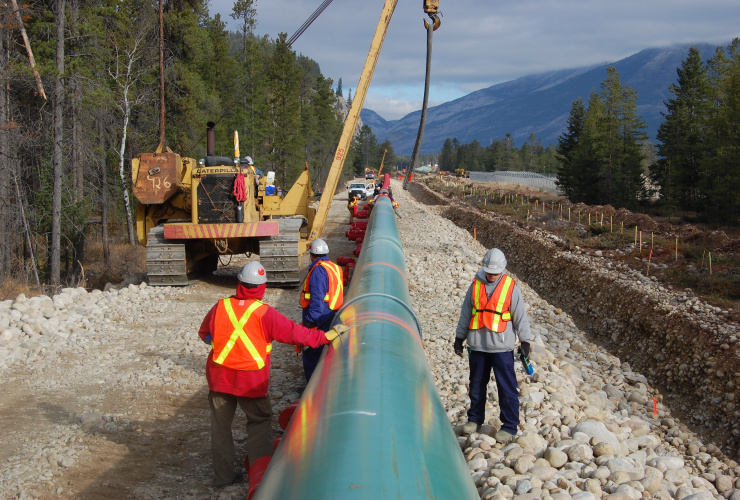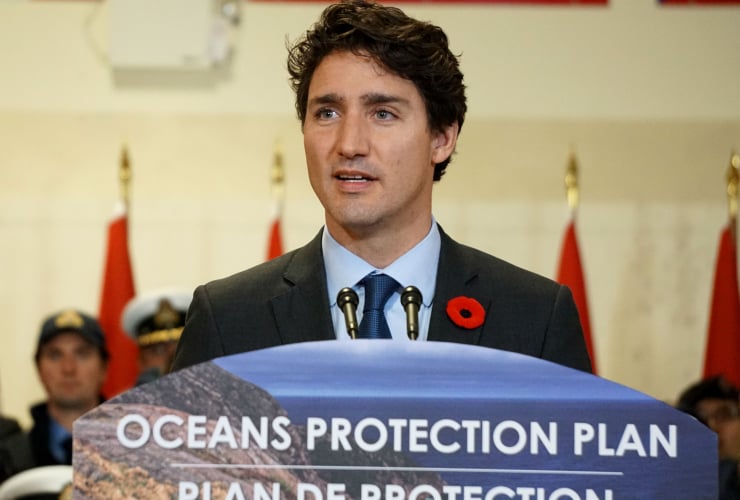The mayors of Vancouver and Burnaby expressed triumph after the Federal Court of Appeal sided with First Nations and quashed the federal government's approval of the troubled Trans Mountain expansion project on Thursday. Both Vancouver and Burnaby had lost legal challenges to stop the controversial oil pipeline project, which Canada agreed to buy from Texas oil giant Kinder Morgan in May.
“The double-whammy decision against the Trans Mountain pipeline validates the strong concerns of the City of Vancouver and many others that Indigenous peoples were not adequately consulted — and marine impacts of oil tankers were ignored — in the federal review pipeline approval," Vancouver Mayor Robertson said in a news release. Robertson and Vancouver city council have formally opposed the project for years, and had launched an unsuccessful legal challenge against the project last fall. The City was also ordered to pay Kinder Morgan for its legal cost after being defeated in March.
"This decision is a monumental win for the rights of Indigenous peoples and all of us who stand with them in firm opposition to a project that would massively increase climate pollution and put our coast at huge risk of oil spills,” Robertson said.
If built, the expansion project would triple the capacity of an existing pipeline system, allowing it to ship up to 890,000 barrels of bitumen and other petroleum products from Alberta’s oilpatch, to a Burnaby terminal in metro Vancouver. The increase of tanker traffic, as well as the impact of construction in conservation areas, were major areas of contention to the City of Burnaby, which argued that the project violated municipal bylaws.
Trans Mountain opponents had already suffered more than a dozen losses in court before Thursday's victory. Just last week, the Supreme Court dismissed Burnaby's appeal of a previous Federal Court ruling in the National Energy Board's favour, and a Postmedia editorial on Friday urged municipalities to "admit defeat" in pipeline court challenges.
"I was very pleasantly surprised when I woke up this morning to be able to find that the Kinder Morgan application has been quashed," said Corrigan. Burnaby residents had been calling him to celebrate the news, he added.
Corrigan said he has found it "difficult" to assert any municipal authority regarding a federally-approved pipeline expansion project, and was happy to see that the Indigenous-led legal challenge had been successful.
"I've always been very conscious of the lack of constitutional status for cities," he said. "There was certainly more muscle in the submissions made by First Nations because they're of equal status to federal and provincial governments. So I'm not declaring any kind of victory in terms of advancing the cause of municipalities and protecting their bylaws, but I think that argument is coming," he said, noting that today's decision was "a condemnation by the court to the lip service that was paid by the federal government to consultation" with Indigenous peoples.
He added that cities are likely experiencing the stages of what First Nations experienced when they first started asserting their land rights and challenging industrial projects.
"Everybody kind of laughed [First Nations] off at first, saying, 'You don't have any authority, you can't do anything.' I think it's been similar with cities. With 85 per cent of Canadians living in cities and most people seeing cities as the most direct government, I think they see that working under an 1867 Constitution that doesn't recognize cities is pretty antiquated."
Trans Mountain said in a statement that it would be reviewing the decision.
"We are reviewing the decision with the Government of Canada and taking the appropriate time to assess next steps. We remain committed to building this project in consideration of communities and the environment, with meaningful consultation with Indigenous peoples and for the benefit of Canadians.”
Trans Mountain is “ reviewing
Trans Mountain is “ reviewing the decision with the Government of Canada”. This statement suggests that the two are closely intertwined and that the Government has been captured by the oil industry. This is fundamentally wrong. The Government should be working for its citizens.
We've been breathing forest
We've been breathing forest-fire smoke for a month now - the farming is faltering in yields due to heat extremes, the honey supply has dropped drastically due to forest-fire smoke - we know climate-change here in the Kootenay, yet the denial that we hear daily is stupefying. The Federal government has invested Canadas' tax money in an extinction economy instead of actively transitioning to a solutions-based clean sustainable economy that will slow down climate change consequences in the future. So we will have to continue our plublic education of what climate-change feels like, so folks realize that we don't have 20 years to react, that we have to act now, this is no way to live (breathe)! . Voters need to put a leash on our dog-like politicians - that leash will be the Proportional Representation voting system. Bring back controlled and monitored behavior!





Comments